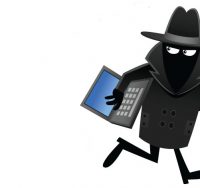Avoid phishing and wire fraud scams over the holidays

Fraudsters often increase their efforts over the holidays when key staff may be away and people generally may be more distracted or rushing to get things done before the end of the year. The risk of getting duped could be increased this year with many of us working from home and the usual checks and lines of communication disrupted somewhat. It is a good time to be reminded of the dangers of phishing scams.
Phishing involves the use of an email, text message or phone call that appears to come from a trusted source or institution, vendor or company, but is actually from a third-party impostor. Phishing messages are intended to trick you into giving fraudsters your information by asking you to update or confirm personal or online account information. Personal information and identity theft and/or payment scams are the motives behind most phishing scams. Fraudsters cast a wide net and make thousands of phishing attempts – they only need one or two dupes to make it pay off.
Phishing is also becoming more sophisticated. Fraudsters can conduct research about you through the internet and other means to obtain information unique to you, including your practice area, your clients, and your personal life. A “spear” phishing attempt is a phishing message that is personally addressed to you, will appear to be from someone you already know (such as a senior partner at the same firm), and may include other detailed personalized information.
For real estate lawyers in particular, once fraudsters have access to your email or other systems, they may attempt fraud involving the wiring of funds from your trust account. We have seen cases where the fraudster has hacked into a lawyer or law firm email system, the client’s email, or the email system of others related to the transaction. In these situations, fraudsters monitor the emails and send wire transfer instructions from legitimate email addresses to send out wire payment instructions. For more information see Wire Fraud Scams on the Rise: 5 Tips to Reduce Your Risk
Educate the lawyers and staff at your firm to make sure they will not fall for a phishing or wire transfer scam. Follow firm processes and procedures for the review and approval of financial transactions – and don’t bypass them due to urgent circumstances. Never share confidential client or firm information without being sure it is appropriate to do so by getting confirmation from someone familiar with the file. Be on the lookout for and question any last minute changes on fund transfers or payments. If you believe you have been victimized by a fraud see What to do if money is diverted to a fraudster’s account.
For more on making sure your firm is on top of cyber security, see our fact sheets on real estate and cybercrime & bad cheques and free CPD on Avoiding the Wire Fraud Nightmare

Leave a Reply